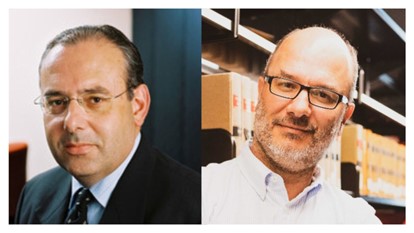Loise Clegg, Lawyer, summarizes the key arguments by Australia’s great legal minds based upon their submissions to the Parliamentary Joint Select Committee.
On May 5, 2023, Loise Clegg, wrote the following in the Financial Review:
At five minutes to midnight, Australians were finally given a chance to have a say on the proposed amendment to the Constitution, which would insert a new chapter to create the Aboriginal and Torres Straight Islander Voice to parliament and the executive government. Over two short weeks (which included the Easter break), the Parliamentary Joint Select Committee apparently received thousands of written submissions.
Of those published so far, we can see the process has yielded some devastating assessments of the proposed amendment. The claim that the proposal is both modest and safe has been dealt a serious blow.
A number of retired superior court judges – eminent and deeply experienced lawyers – focused on the very worst feature of the proposal; namely that it will introduce inequality of citizenship into our Constitution, with possible unintended but entirely foreseeable consequences.
David Jackson, KC, Australia’s pre-eminent constitutional law barrister, said: “It would mean we become a nation where … we are not all equal.” Nicholas Hasluck, KC, submitted that the proposal would create “[a] profound and essentially irreversible change to the structure of government [which] is contrary to democratic ideals reflected in the Constitution”, and Terry Cole, KC, wrote that its inclusion in the Constitution would provide “the potential for great, irredeemable harm to Australian society”.
Many legal luminaries, including former High Court justice Ian Callinan, KC, have said that the claim that this was legally safe was simply wrong. These contributions alone warrant a full reassessment of the entire proposal. At the very least it requires the government to answer serious questions about the prospect of unintended consequences, which so far have not even been acknowledged, let alone addressed.
However, it is the unexpected but magnificent submission no. 92 that could go down in history as the constitutional law game changer in the Voice debate. In a remarkable contribution, distinguished professors of constitutional law, Nicholas Aroney and Peter Gerangelos, have given us the most scholarly, serious minded and substantive contribution to the legal debate so far. It has undermined key claims of the Constitutional Expert Group and the advice of the solicitor-general.
The 17-page submission cannot be summarised in a short space. However, the headlines include that if the referendum is carried, there will be a new institution of state in the Constitution. Specifically, the professors say the new body to be enshrined as the Aboriginal and Torres Strait Islander Voice will have similar constitutional status to the parliament, the executive and the High Court. This supports the characterisation of the Voice as a novel, new Indigenous advisory arm of government. Translated for the voting public: this is bigger than Ben-Hur and will change our system of government and society.
We are close to landing a constitutional amendment which will fail the nation.
The professors open a new can of worms about inclusion of the so-called “introductory words” to the proposed new Section 129. Aroney and Gerangelos explain how this preamble could form the basis for the High Court to imply a higher, new fiduciary duty owed by the Commonwealth to all Indigenous people over and above other citizens, as has occurred in Canada. These words were recommended for inclusion in Section 129 by the expert group at the last minute without explanation.
Aroney and Gerangelos confirm that the amendment would insert into the Constitution a “positive right”. Rights of any kind are currently unknown to the Australian Constitution. Inexplicably, before Christmas, the expert group advised us that no rights of any kind were being afforded by the proposed amendment. This is universally acknowledged as quite wrong, yet the expert group has not clarified or explained why it made this fundamental error of characterisation.
Read in its entirety, the submission militates against the solicitor-general’s advice. The professors’ opinion is far superior. They hold the proposal up to the light, and explore all its elements; whereas the scope of the S-G’s advice is narrow, incomplete and political.
Aroney and Gerangelos are mainstream constitutional law academics. They are highly respected writers and researchers. They have at least as much standing as the constitutional law experts in the expert group. They are popular teachers at their respective law schools. They have written and collaborated with many of the academics in the Yes camp. They come to the Voice debate with no history of wading into political matters.
Their contribution is a textbook exercise in restraint, which adds to its authority. The professors do not claim to know what the High Court would do, or how the Voice would evolve as a repository of power. But their assessment of the possibilities is vastly different, more comprehensive and sober than the advocacy we have seen from the expert group and the selected advice from the solicitor-general.
The work reveals the proposed new Section 129 as an undercooked thought experiment which has not been scrutinised, interrogated or stress-tested by people with sufficient viewpoint diversity. With the public hearings now closed, the committee has not been able to hear oral evidence from these distinguished professors who have gifted our country a most substantial contribution.
We are close to landing a constitutional amendment which will fail the nation because of an abject failure of proper process. Galloping headlong into a referendum on a topic of immense importance and sensitivity, about which there has not been genuine, broad consultation, and which has been conceptualised and jealously guarded by a tiny group of like-minded adherents, is already damaging our polity. The division will continue whatever the outcome.
It is in the national interest that we gently dismount, take a good break – learn from this terrible failure of process – and start again.
Original source: Indigenous Voice to parliament: Why we need to start again (afr.com)

